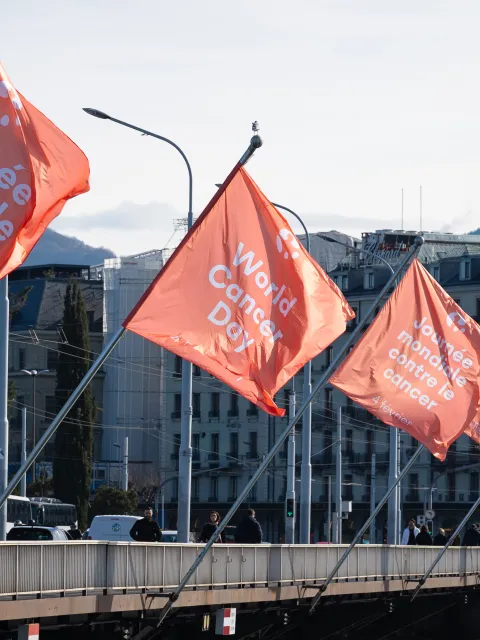Commercial interests drive millions of cancer deaths
Marking World Cancer Day on 4 February, UICC calls on governments around the world to prioritise four policy actions to reduce preventable cancers caused by tobacco use and the consumption of alcohol and ultra-processed foods.

Sugary drinks and ultra-processed foods are known drivers of high body mass index and, like tobacco and alcohol, are potentially addictive. These products are marketed by companies whose corporate interests often outweigh concerns for global health.
Join World Cancer Day Instagram Live
5k Challenge
On 4 February, throughout the day, UICC will be checking in with members in different countries to show how they are participating in the, to 5k Challenge and other exciting initiatives.
Nearly half of all deaths due to cancer – 4.45 million out of more than nine million in 2019 – are caused by known modifiable risk factors, with smoking, alcohol consumption and high body mass index (BMI) among the top three.
Sugary drinks and ultra-processed foods are known drivers of obesity, defined as a BMI above 30 and, like tobacco and alcohol, are potentially addictive. These products are marketed by companies whose corporate interests often outweigh concerns for global health.
Given the growing burden of cancer globally and particularly in low- and middle-income countries (LMICs), UICC calls upon governments this World Cancer Day to strengthen their resolve and implement policies that severely restrict the ability of companies to market and sell their carcinogenic products.
“Millions of avoidable cancer deaths are caused by unhealthy products sold by heartless companies who interfere in policy debates and misuse science to secure a favourable commercial environment. As we celebrate World Cancer Day, UICC stands ready to support governments in their efforts to limit people’s exposure to tobacco, alcohol and ultra-processed food products.”
– Cary Adams, CEO of the Union for International Cancer Control
In particular, UICC recommends four policy actions that have proved effective in reducing the availability and consumption of unhealthy products:
- Increase taxation: Studies in the US show that a 10% increase in the price of cigarettes reduces adult consumption by 3-5%, and youth are up to three times more responsive than adults.
- Enforce marketing limitations, including age restrictions and reduced points of sale. A government analysis in the UK showed that banning junk food advertising on TV before 9pm would result in £1.9 billion in public health benefits with reductions in obesity-related ill health over children’s lifetimes.
- Improve labelling: Impose product warning and information labels.
- Run extensive public education campaigns to improve knowledge of risk factors, and further counter misleading advertising, market promotion and policy interference.
“Australia was one of the first countries to ban tobacco advertising and the first to impose plain packaging for cigarettes. These policies have led to less brand identification, lower acceptance of smoking, better perception of health risks, reduced uptake among youth and more adults quitting. Similar policies for alcohol and ultra-processed foods, aligned with the particular risks of these products, will help blunt the unscrupulous marketing strategies of some companies who target youth and other vulnerable populations with their unhealthy products.”
– Prof. Jeff Dunn AO, President of the Union for International Cancer Control
The aggressive marketing of unhealthy products also increases the differences in the number and severity of cancer cases and in cancer-related deaths around the world, both within countries and between high- and lower-income regions. Vulnerable populations are more likely to experience a higher cancer incidence and lower survival rates than others.
“Many governments know that their populations are targeted by companies eager to sell unhealthy products but their ambitions to curtail these actions are often met with resistance from industry actors, including legal challenges to effective policy measures and legislation. Opposition to a sugar tax by manufacturers of sugary drinks, stealing a page out of Big Tobacco’s playbook, is just one example among many.”
– Ulrike Årehed Kågström, President-elect of UICC and Secretary General of the Swedish Cancer Society
World Cancer Day 2023 is led by the theme “Close the care gap”, recognising inequities in health that exist for many populations. This is the second of a three-year campaign on equity, to raise awareness about the lack of equity in cancer care and prompting action at every level to break down the barriers that exist for many people in accessing services and receiving the care they need.
For more information about events that are happening around the world on 4 February, please visit: www.worldcancerday.org/map.
Last update
Monday 27 February 2023
